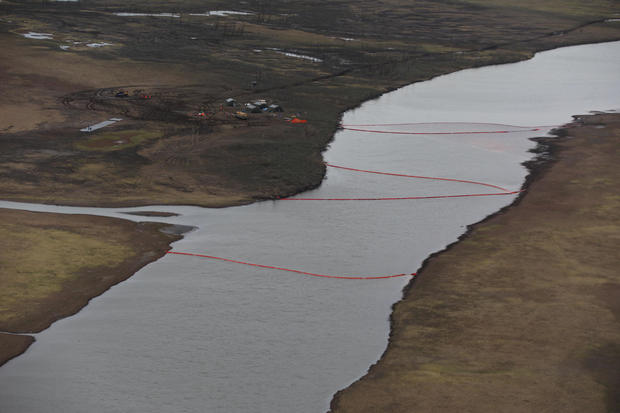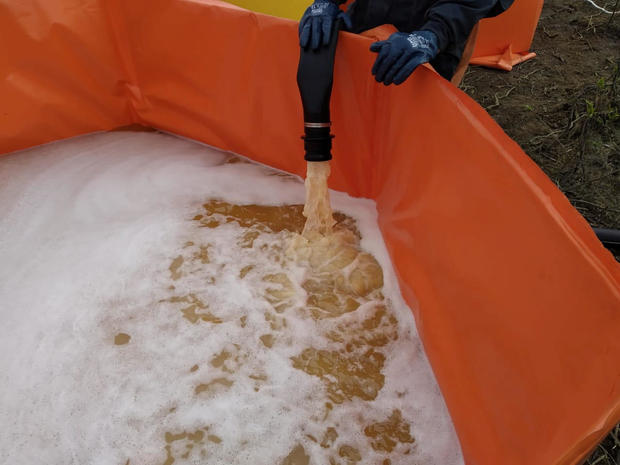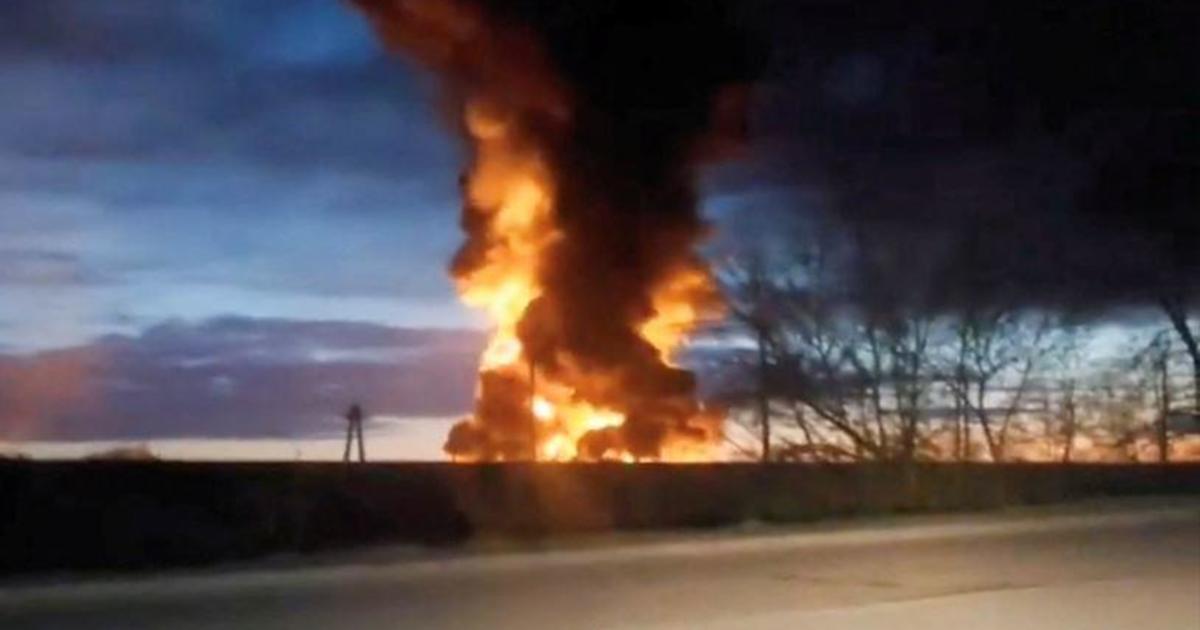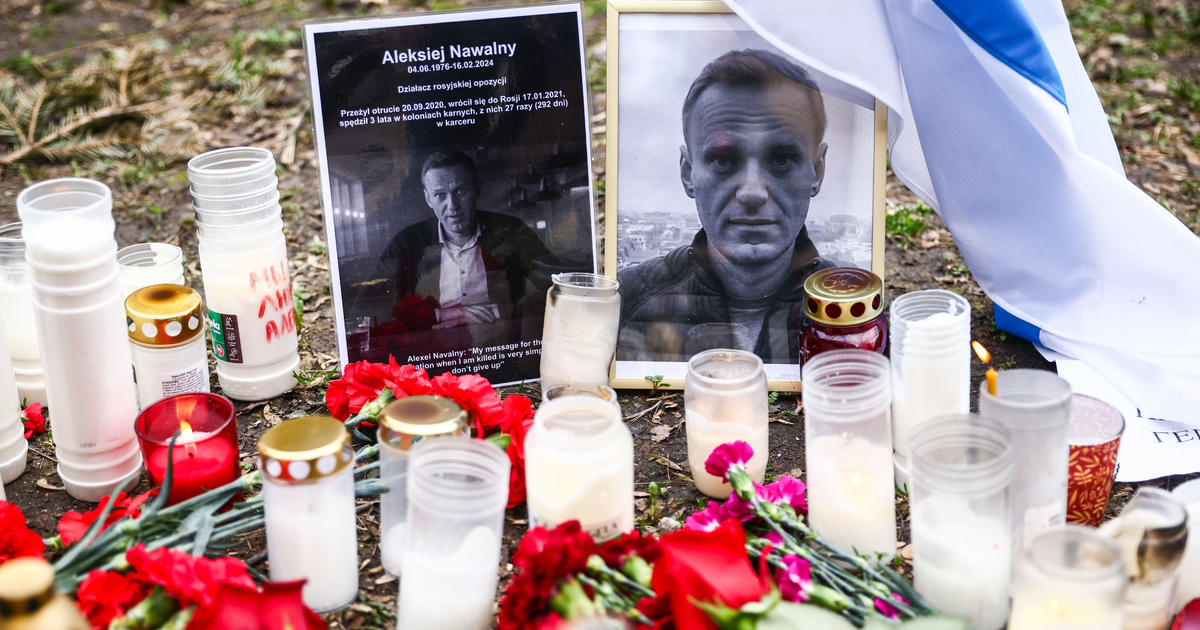Putin declares state of emergency after massive fuel leak pollutes river in the Arctic Circle
Moscow — Russian President Vladimir Putin has declared a state of emergency in the Siberian city of Norilsk after a massive fuel leak spilled into a river. Environmentalists call it one of the worst ever seen in the Arctic.
The accident took place last week, when a reserve fuel tank from a local thermal power plant leaked more than 20,000 tons of diesel Friday, coloring nearby rivers crimson red, but caught the attention of federal authorities days later.
The plant's parent company, a metals giant Norilsk Nickel, has suggested that the accident occurred due to thawing permafrost that led to the sinking of the supporting posts under the tank.
During a televised conference Wednesday, Putin criticized the company for failing to report and react promptly to the incident. Governor of the Krasnoyarsk Region, which includes Norilsk, told Putin that he had learned about the situation only two days later, when he saw some alarming social media posts.
Norilsk Nickel issued a statement saying that the incident was reported timely to the emergency services shortly after the spill had been recorded by the plant. It said that copies of the reports have been sent to law enforcement agencies.
The Investigative Committee, which looks at all major crimes in the country, reported that three criminal probes have been opened in connection with the incident over contamination and alleged violation of environmental safety regulations. One senior employee of the plant has been detained.
While officials are still looking into possible causes of the leak, the company's first vice president and chief operating officer Sergey Dyachenko, who is in charge of the company's response efforts, linked it to the preceding warm winter.
"We can assume that abnormally mild temperatures could have caused permafrost thawing resulting in partial subsidence of the tank's supports," Dyachenko was quoted by the company as saying.
Russia's vast permafrost has been rapidly thawing in the Arctic regions due to global warming, causing damage to the buildings in Norilsk and other cities.
"It's a disaster of global scale"
The World Wildlife Fund called the accident the second largest in modern Russian history in terms of volume since a crude oil spill in the northwestern region of Komi in 1994, according to AFP. Meanwhile, Greenpeace has compared it to the 1989 Exxon Valdez disaster in Alaska, when some 36,000 tons of oil spilled in the sea waters.
"It's a disaster of global scale — one of the worst that occurred in the Arctic," an expert with Greenpeace Russia Vasily Yablokov told CBS News on Thursday. He said that the aftermath will depend on how quickly the response teams manage to handle the spill. The environmentalist warned that it would take many years for the environment to recover. "Norilsk has already been a zone of environmental disaster and the accident could worsen the situation there," Yablokov said.
Norilsk is a remote and closed for foreigners city inside the Arctic Circle. The city and its mines were constructed by the Soviet Union with the use of Gulag prisoners' labor. In modern history, it has been known as one of the world's most polluted cities in the world due to the metallurgical complex emissions.





